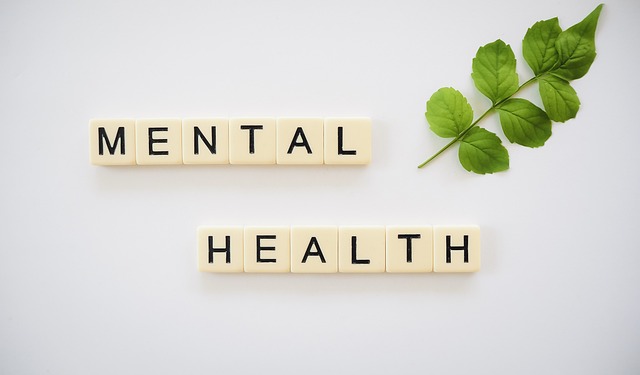Stress and anxiety are common modern challenges impacting overall wellness. Effective wellness practices, including mindfulness techniques (like yoga and meditation), stress management strategies, healthy eating, and regular exercise, regulate stress responses, reduce anxiety, and enhance well-being. These holistic approaches support mental resilience, promote inner peace, and contribute to a balanced lifestyle.
In today’s fast-paced world, managing stress and anxiety has become a vital aspect of maintaining overall wellness. This comprehensive guide explores effective wellness practices to cultivate calm and enhance mental resilience. From understanding the underpinnings of stress and anxiety to discovering powerful mindfulness techniques and yoga exercises, you’ll learn practical strategies for stress management.
We delve into various meditation practices, the transformative power of gratitude journaling, and the importance of establishing nurturing self-care routines. Additionally, we highlight how healthy eating habits and regular physical activity play pivotal roles in supporting mental well-being. Embrace these holistic stress management strategies to achieve a balanced and fulfilling life.
- Understanding Stress and Anxiety: The Foundation for Wellness Practices
- – Defining stress and anxiety
- – Impact of chronic stress and anxiety on mental and physical health
- Mindfulness Techniques and Yoga Exercises for Calmness
Understanding Stress and Anxiety: The Foundation for Wellness Practices

Stress and anxiety are prevalent modern-day challenges that can significantly impact our overall wellness. Understanding these states is crucial to adopting effective wellness practices. When we feel stressed or anxious, our bodies enter a ‘fight or flight’ response, triggering various physiological changes. Over time, chronic stress and anxiety can lead to numerous health issues, affecting both mental and physical well-being.
This is where mindfulness techniques, such as yoga exercises and meditation practices, become valuable tools. Engaging in regular stress management strategies like these, alongside adopting healthy habits like healthy eating and regular physical activity, can help regulate our response to stress. Incorporating deep breathing exercises, gratitude journaling, and self-care routines into daily life can also contribute to a more balanced and peaceful state of being, fostering overall wellness.
– Defining stress and anxiety

Stress and anxiety are prevalent modern-day challenges that can significantly impact our overall wellness. They often arise from various factors, such as work pressures, personal relationships, or health issues, leading to a range of physiological and emotional responses in individuals. Stress is typically defined as the body’s natural response to demands or threats, characterized by increased heart rate, muscle tension, and heightened awareness. On the other hand, anxiety refers to a persistent feeling of worry, fear, or unease, often accompanied by physical symptoms like restlessness, difficulty sleeping, and rapid breathing.
Addressing these issues is crucial for maintaining optimal wellness practices. Mindfulness techniques, such as meditation practices and deep breathing exercises, have gained popularity as effective stress management strategies. Yoga exercises and gratitude journaling are also renowned self-care routines that promote mental clarity and emotional balance. Additionally, adopting healthy eating habits, engaging in regular physical activity, and cultivating a consistent self-care routine can significantly contribute to reducing anxiety levels and enhancing overall well-being.
– Impact of chronic stress and anxiety on mental and physical health

Chronic stress and anxiety can have profound effects on both mental and physical health. Prolonged exposure to stressful situations can lead to increased levels of cortisol, often referred to as the ‘stress hormone’, which over time can disrupt various bodily systems. This can result in a range of symptoms such as insomnia, fatigue, digestive issues, and even a weakened immune system. Mentally, chronic stress and anxiety can cause heightened feelings of worry, irritability, and depression, impacting overall quality of life.
Wellness practices like mindfulness techniques, yoga exercises, and meditation practices have been shown to be effective stress management strategies. Incorporating these into daily routines can help regulate the body’s response to stress. Additionally, healthy eating habits and regular physical activity play a crucial role in supporting mental resilience. Deep breathing exercises are another powerful tool, as they activate the parasympathetic nervous system, promoting relaxation and reducing anxiety. Even simple practices like gratitude journaling and self-care routines can make a significant difference in managing stress levels and enhancing overall wellness.
Mindfulness Techniques and Yoga Exercises for Calmness

Mindfulness techniques and yoga exercises are powerful wellness practices that can significantly contribute to stress management strategies. By integrating mindfulness into your daily routine, you can enhance your ability to stay present and reduce anxious thoughts. Simple meditation practices, such as focusing on your breath or scanning your body, encourage a state of calm and awareness, helping to quiet the mind and cultivate a sense of inner peace.
Yoga exercises combine physical postures, deep breathing techniques, and mindfulness, making it an excellent choice for those seeking holistic stress relief. Regular practice can improve flexibility, strength, and balance while promoting relaxation. Additionally, yoga encourages the cultivation of gratitude journaling and self-care routines, which are essential components of a healthy lifestyle. Incorporating these wellness practices into your routine can lead to better mental clarity, improved emotional well-being, and enhanced overall health.
Incorporating wellness practices such as mindfulness techniques, yoga exercises, and meditation practices into your daily routine can be a game-changer in managing stress and anxiety. By combining these with healthy eating habits, regular physical activity, deep breathing exercises, gratitude journaling, and self-care routines, you can create a holistic approach to stress management that enhances both mental and physical well-being. Remember that consistent practice is key; even short moments of mindfulness throughout the day can make a significant difference in reducing stress levels and fostering overall calmness.
